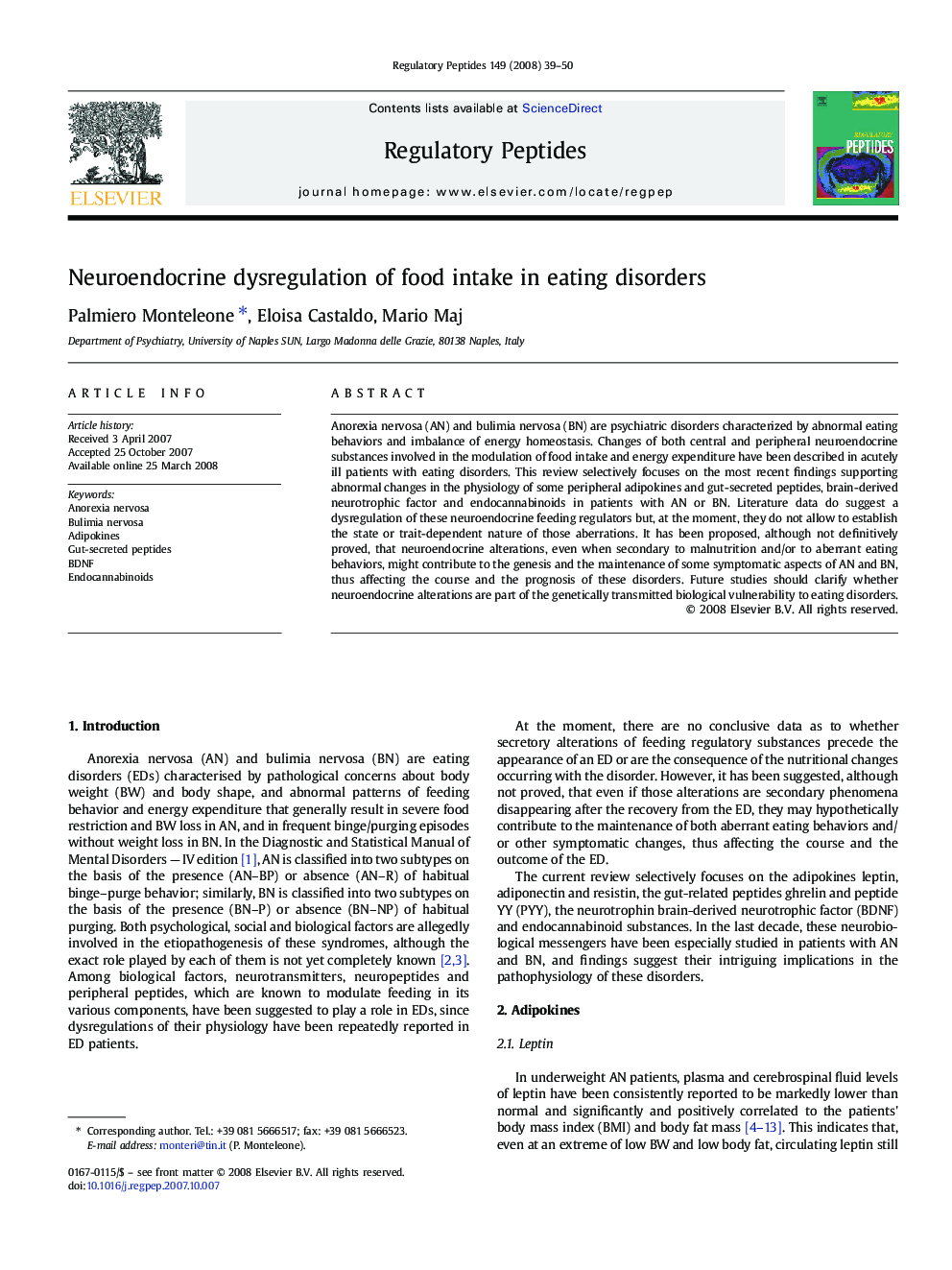| Article ID | Journal | Published Year | Pages | File Type |
|---|---|---|---|---|
| 2023134 | Regulatory Peptides | 2008 | 12 Pages |
Anorexia nervosa (AN) and bulimia nervosa (BN) are psychiatric disorders characterized by abnormal eating behaviors and imbalance of energy homeostasis. Changes of both central and peripheral neuroendocrine substances involved in the modulation of food intake and energy expenditure have been described in acutely ill patients with eating disorders. This review selectively focuses on the most recent findings supporting abnormal changes in the physiology of some peripheral adipokines and gut-secreted peptides, brain-derived neurotrophic factor and endocannabinoids in patients with AN or BN. Literature data do suggest a dysregulation of these neuroendocrine feeding regulators but, at the moment, they do not allow to establish the state or trait-dependent nature of those aberrations. It has been proposed, although not definitively proved, that neuroendocrine alterations, even when secondary to malnutrition and/or to aberrant eating behaviors, might contribute to the genesis and the maintenance of some symptomatic aspects of AN and BN, thus affecting the course and the prognosis of these disorders. Future studies should clarify whether neuroendocrine alterations are part of the genetically transmitted biological vulnerability to eating disorders.
